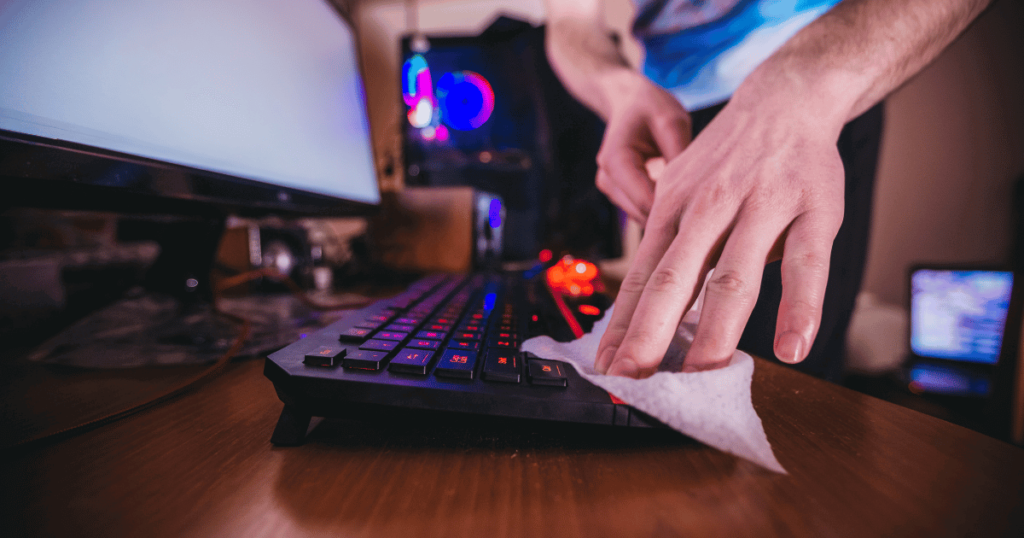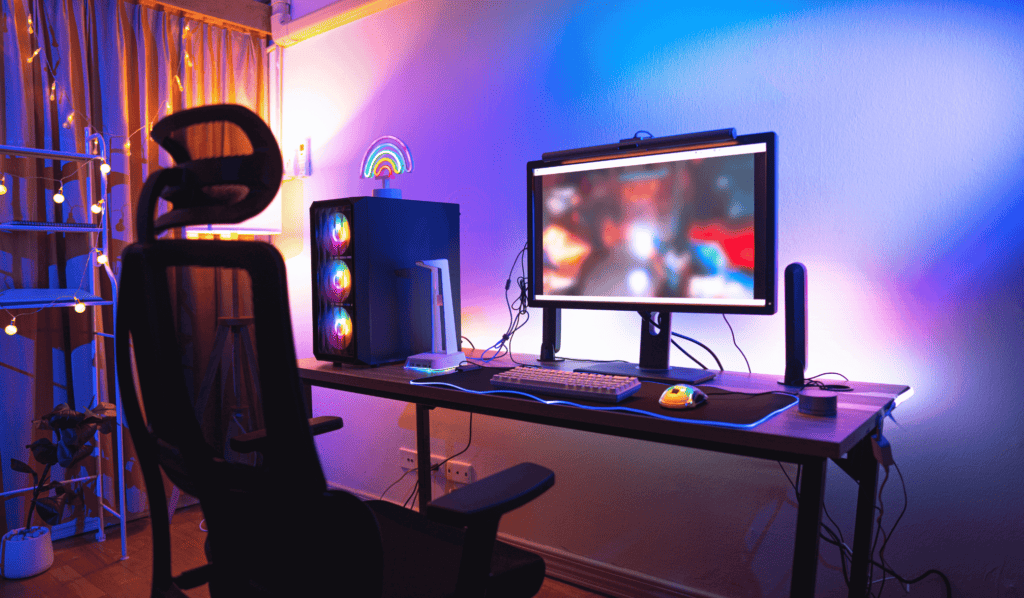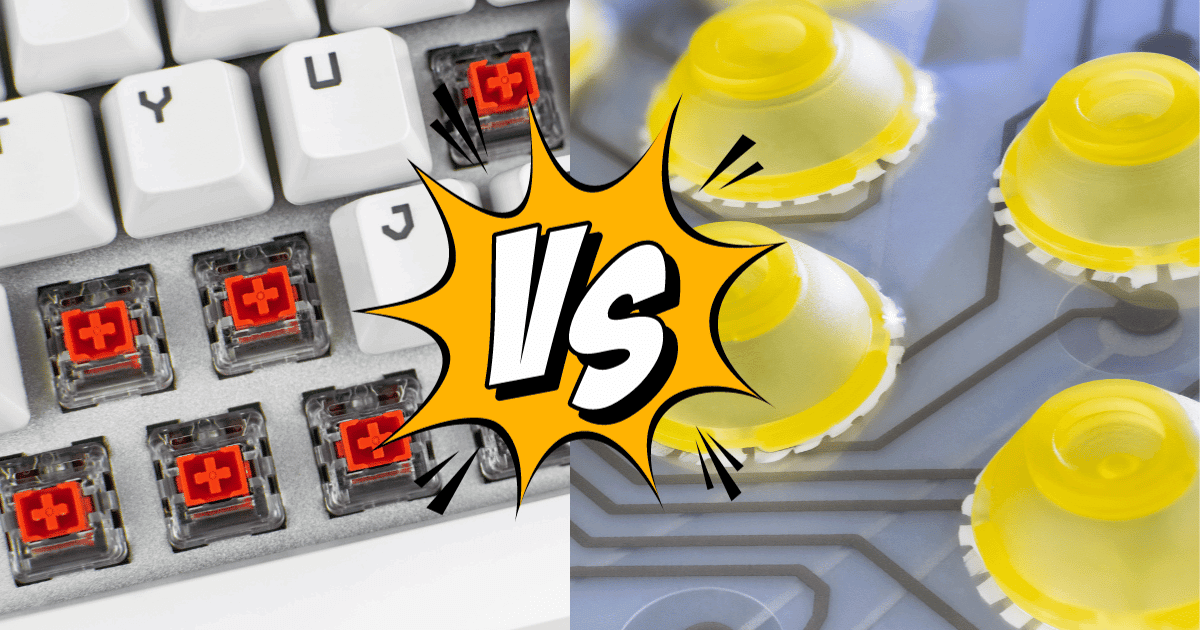Ever wondered about the difference between regular and fancy-sounding mechanical keyboards?
It’s like choosing between sneakers and boots; both do the job but in different ways. Some folks love the soft press of regular keyboards, while others enjoy the clicky sound of mechanical ones.
If you’re curious about which is better for gaming, typing, or just everyday use, you’re in the right place! Let’s dive in and explore together.
Key Takeaways
- Mechanical keyboards offer superior tactile feedback, enhancing gaming and typing responsiveness.
- Membrane keyboards provide a softer, quieter typing experience suitable for noise-sensitive environments.
- Mechanical keyboards are built for durability, often outlasting their membrane counterparts.
- While mechanical keyboards tend to be pricier, their long-term value, especially for heavy users, can justify the investment.
- For gaming, mechanical keyboards offer a better user experience.
Membrane vs Mechanical: Which One is Right for You?
Performance and Responsiveness

Membrane keyboards have a softer feel due to their rubber dome structure. This results in a full key press requirement, which some describe as a “mushy” experience. It’s straightforward and gets the job done, especially for casual tasks.
Mechanical keyboards, in contrast, offer a more immediate response. The variety of switches available means you can choose the level of resistance and tactile feedback that suits you best.
Durability and Lifespan

Membrane keyboards are decently durable and can serve you well for a good number of years. However, with continuous heavy use, the rubber domes can degrade, affecting key responsiveness.
Mechanical keyboards are built for durability. The individual switches are designed to withstand millions of keypresses, making them a favorite for those who spend a lot of time at their keyboards.
While they might require occasional maintenance, such as cleaning or switch replacement, they’re designed to last longer than membrane keyboards.
Cost Implications
When budgeting for a keyboard, it’s essential to consider both the initial cost and long-term value. Membrane keyboards are generally more wallet-friendly upfront, making them a popular choice for those not looking to invest heavily.
On the other hand, mechanical keyboards, with their robust build and customizable features, tend to be pricier. However, their longevity and the enhanced typing experience they offer can make the investment worthwhile, especially for avid typists and gamers.
Sound and Noise Levels
The sound of a keyboard can significantly impact a gaming environment.
| Keyboard Type | Sound Profile | Notable Features |
|---|---|---|
| Membrane | Soft, subdued | Ideal for quiet environments |
| Mechanical (Clicky Switch) | Loud, tactile click | Audible feedback; might be disruptive in shared spaces |
| Mechanical (Tactile Switch) | Soft bump, moderate noise | Balance between feedback and noise |
| Mechanical (Linear Switch) | Smooth, quieter press | Less noise than clicky but more than membrane |
Specific Use Cases
Gaming

Every gamer knows that the right equipment can elevate their gameplay. Mechanical keyboards are often the top choice for serious gamers. Their tactile feedback and swift responsiveness ensure that every action, from rapid keystrokes to strategic moves, is executed flawlessly. This can be the difference between clinching that victory or facing defeat.
That said, not every game demands the precision of a mechanical keyboard. Casual gamers or those who enjoy slower-paced games might find membrane keyboards adequate. They’re quieter, making late-night gaming sessions less disruptive, and are generally more affordable.
Typing and Professional Use
In professional settings, efficiency and comfort are paramount. Mechanical keyboards offer a typing experience that many find superior. The tactile feedback can lead to faster typing speeds and fewer errors, which is essential for professions where time is of the essence.
However, the benefits aren’t just about speed. The ability to choose a switch type that matches one’s typing style can reduce fatigue, making those long workdays a bit more bearable.
Health and Ergonomics

Spending hours at a keyboard can take a toll on one’s health. While we’re not health experts, it’s widely acknowledged that the design and type of a keyboard can influence hand and wrist comfort.
Mechanical keyboards, with their varied switches, allow for a more tailored typing experience. For some, this can mean less strain on the fingers and wrists. For instance, lighter switches might be preferable for those prone to hand fatigue, while tactile switches can provide feedback without needing to bottom out the keys.
However, it’s not just about the keys. The height and angle of the keyboard, as well as the presence of wrist supports, can influence comfort. Those with specific concerns might find that an ergonomically designed membrane keyboard offers the support they need.
My Own Experience With Mechanical Keyboards

Before I made the switch, I was a long-time user of membrane keyboards. For years, they were my go-to, due to their affordable price. The last membrane keyboard I owned was the Cooler Master Devastator 3. It was a commendable piece of equipment, serving its purpose well and never really giving me a reason to complain.
However, everything changed when I got my hands on my first mechanical keyboard from Redragon. The transition from membrane to mechanical was nothing short of transformative. It felt akin to the leap from a 60hz monitor to a 144hz one. It’s one of those upgrades where you don’t truly grasp the magnitude of the difference until you experience it firsthand.
And let me tell you this, once you’ve tasted that tactile satisfaction of a mechanical keyboard, there’s no turning back. I tried reverting to my old membrane keyboard out of curiosity, and it just wasn’t the same. The experience felt lackluster in comparison.
It’s safe to say, I’m firmly in the mechanical camp now, and I wholeheartedly recommend anyone on the fence to give it a shot.
Conclusion
In the end, whether you choose a membrane or mechanical keyboard, it’s all about what feels right for you. Both have their perks!
Curious to hear from you all—which keyboard are you currently using? Thinking of making a switch? Drop a comment below and share your thoughts!
We're an affiliate
We hope you love the products we recommend! Just so you know, gameraround.com is a participant in the Amazon Services LLC Associates Program, an affiliate advertising program designed to provide a means for sites to earn advertising fees by linking to Amazon.com.

